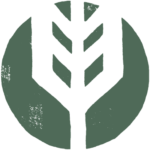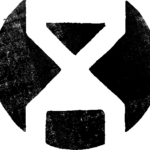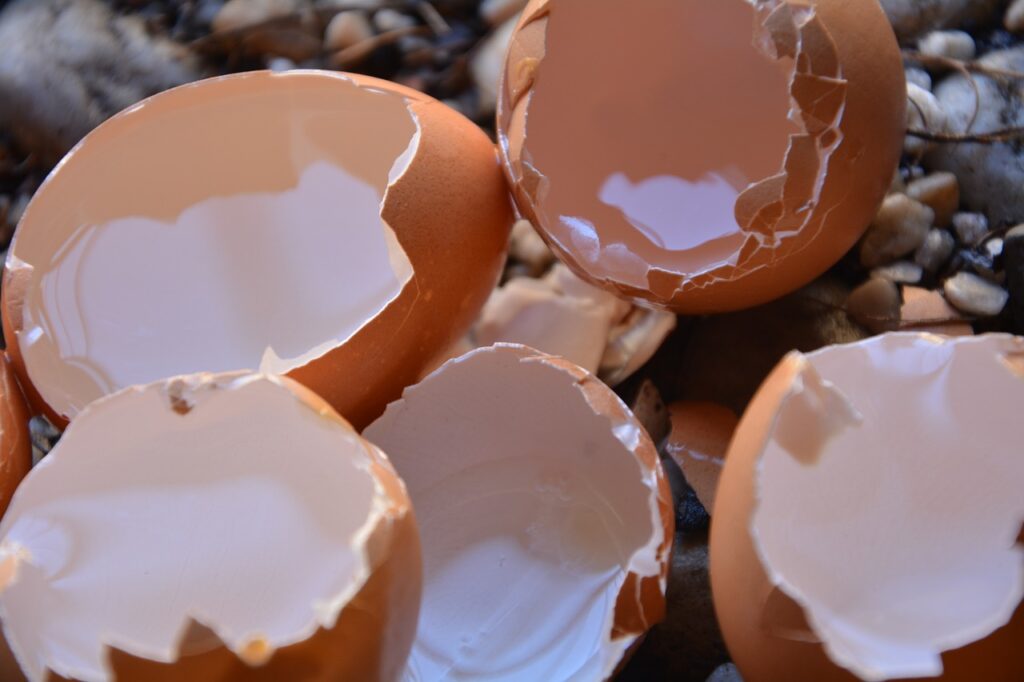Before distribution, eggs are checked for defects such as dirt, damage, deformations and they are discarded if imperfect. This surplus can be thermoformed into a bioplastic without any additives. The eggshells fuse as the albumin in the eggwhite binds when subjected to heat and pressure. Seen today as a bowl, vase or egg holder, and perhaps tomorrow as a tile or kitchen cupboard?
The eggshell tiles are made of:
- 50% eggshells
- 50% dehydrated egg white
The production process
- The eggs are cleaned and split into yolk, egg white and shells. Splitting ca. 500 eggs takes 1 hour.
- The egg whites are dehydrated at 70° (this takes 15 hours) and after that pulverized, resulting in a powder.
- This powder is mixed with the egg shells and pressed into a mold at 195°C and 30 tons of pressure. One object can be pressed into its desired shape in 40 minutes.
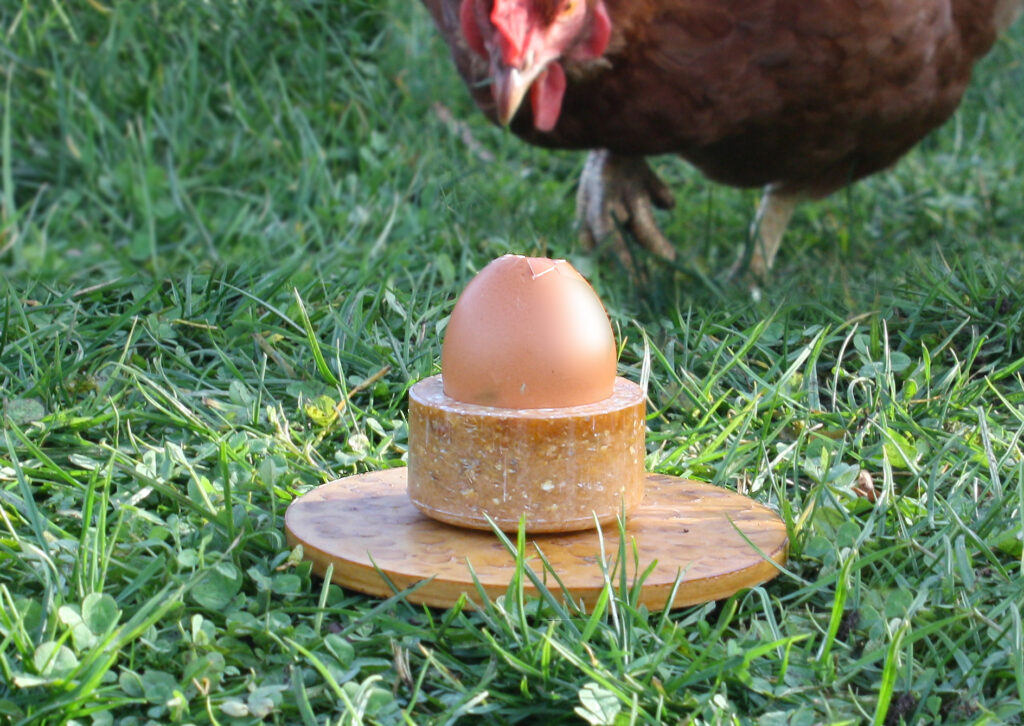
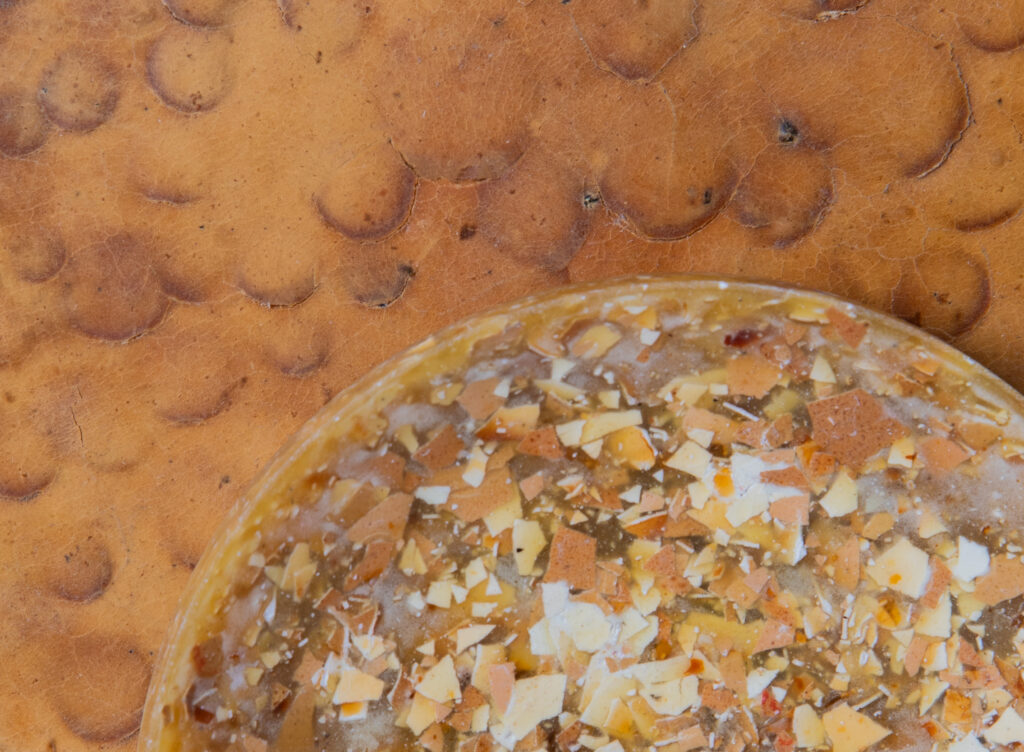
The material can be made 100% from eggs without any additives, because the albumin contained in the egg whites binds when subjected to heat and pressure.
Applied
The material is being used to produce indoor objects that are sold through various design shops. At this moment, the main application is smaller objects such as bowls and vases, and a lighting system is being developed as well.
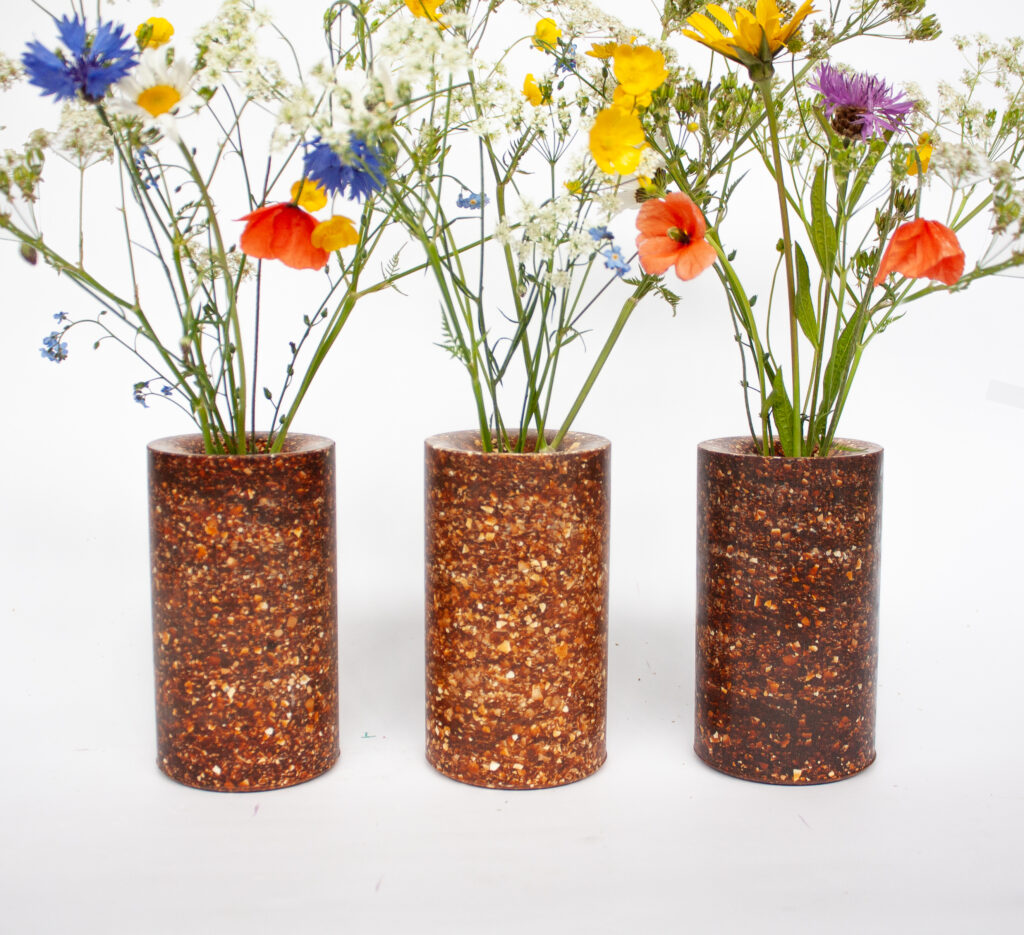
Environmental impact
- This material is made with animal based products. Therefore, the first and most important point is where the material is sourced, meaning what is the quality of life of the animals and what is the ecological impact? Working with by-products and waste of unsustainable farming practices results in unsustainable products as they support the status quo. For this reason, the material used for this project comes from a certified biological farm that puts great efforts into animal welfare.
- The objects are produced without any additives resulting in a 100% natural product.
